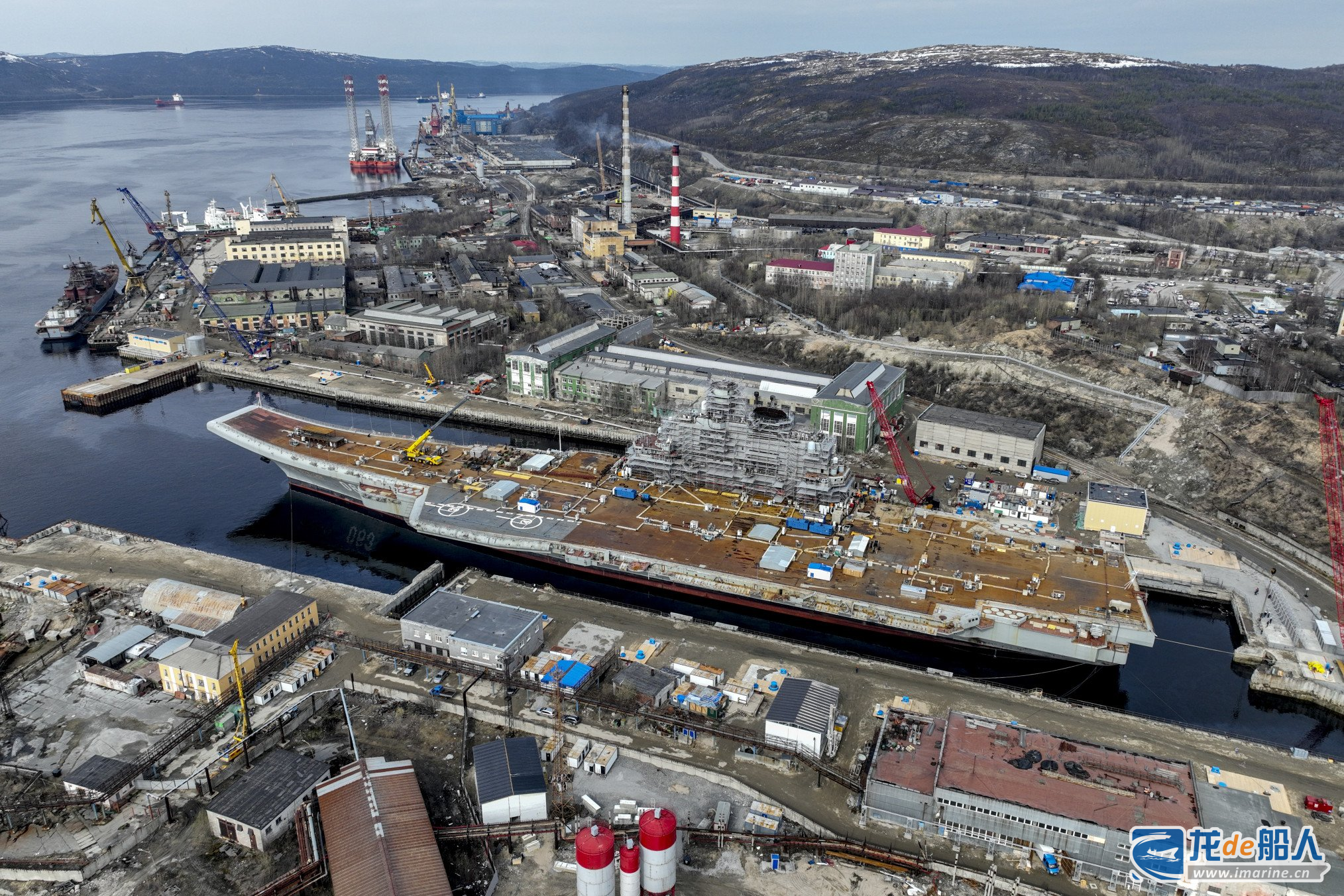The impact of Western sanctions on Russia’s shipbuilding industry continues to be felt due to the Russia-Ukraine conflict. Foreign media reports indicate that a major icebreaker construction contract has been canceled at a Russian shipyard, and shipyards in the Far East have already experienced layoffs due to a lack of new orders.

Russian media reported that Rosmorport, Russia’s state-owned port operator, has canceled contracts for the construction of two innovative icebreakers. The order was signed in July 2021 (before the outbreak of the Russia-Ukraine conflict).
The report pointed out that the delay in delivery was the main reason for Rosmorport’s cancellation of the shipbuilding contract. The delivery date for the two icebreakers has been postponed from 2024 to December 2026, and the delay in delivery was due to Western sanctions that prevented the shipyard from obtaining key equipment from relevant equipment suppliers. Rosmorport is demanding a refund of the $116 million advance payment.
Rosmorport reportedly initially placed an order for the two innovative icebreakers with Onega Shipyard in Russia’s Far East for a total value of approximately $200 million. The innovative icebreakers, independently developed by the Russian shipbuilder, are approximately 95 meters long and can navigate ice up to 1.5 meters thick. They will utilize a liquefied natural gas (LNG) dual-fuel propulsion system and will be equipped with French Azipods thrusters and Wärtsilä generators.
To facilitate the project, Onega Shipyard had previously subcontracted some of the construction work to Turkey’s Kuzey Star Shipyard. However, sanctions have prevented Turkey from continuing with the work, and equipment such as propulsion systems and generators are also subject to restrictions. Russia stated that it is currently working to develop domestic production capacity to fill the equipment gap created by the sanctions.
There are also reports of increasing layoffs at Russian shipyards due to a lack of orders. For example, Onega Shipyard, which previously built commercial fishing vessels, has received no new orders from either the government or the commercial sector. Analysts cite Onega Shipyard’s remote location in the Far East, which has led to higher costs and is a challenge.
Due to a lack of production orders, Russia’s largest shipbuilding group, United Shipbuilding Corporation (USC), plans further layoffs. The group has already reduced the staff at Khabarovsk Shipbuilding Plant, one of the largest shipyards in the Far East. More seriously, the Khabarovsk Shipbuilding Plant may face closure. According to reports, the Khabarovsk Shipyard’s workforce is shrinking, from over 500 employees in 2023 to 293 in 2024. By the end of October 2025, the company plans to cut 70% of its workforce, reducing the number of employees to just 90.
Separately, Vympel Shipyard, affiliated with USC, has begun layoffs. Reports indicate this is due to a lack of funding for fleet modernization. Sources within the shipyard confirmed that as of July 1st, at least 33 of Vympel’s 950 employees had received layoff notices. The exact scale of the layoffs has not yet been determined, but it is expected to primarily target non-technical staff, while production personnel will retain their positions. The layoffs are expected to be phased in until the end of the year.
It is reported that the leadership of USC and Vympel Shipyard have committed to providing laid-off employees with suitable positions at other USC-affiliated companies, which will match the employees’ qualifications and experience, and guarantee that all social security and compensation obligations will be fulfilled.
USC, operated by VTB Bank (VTB), was established in March 2007. It has over 40 affiliated enterprises, covering design institutes, research centers, shipyards, ship repair yards, and machinery manufacturing plants. The corporation has integrated most of Russia’s domestic shipbuilding resources, employing 95,000 people, with its products including merchant ships, nuclear submarines, aircraft carriers, and other naval vessels.


